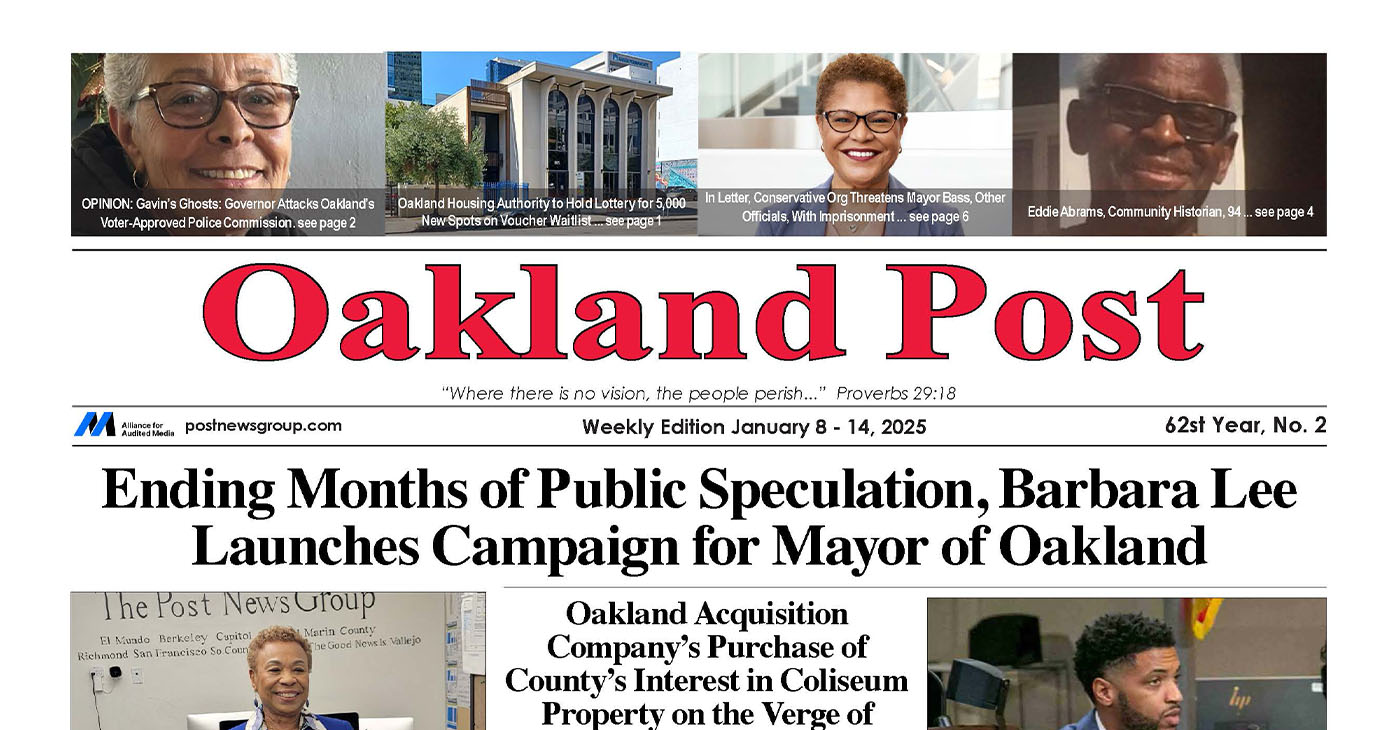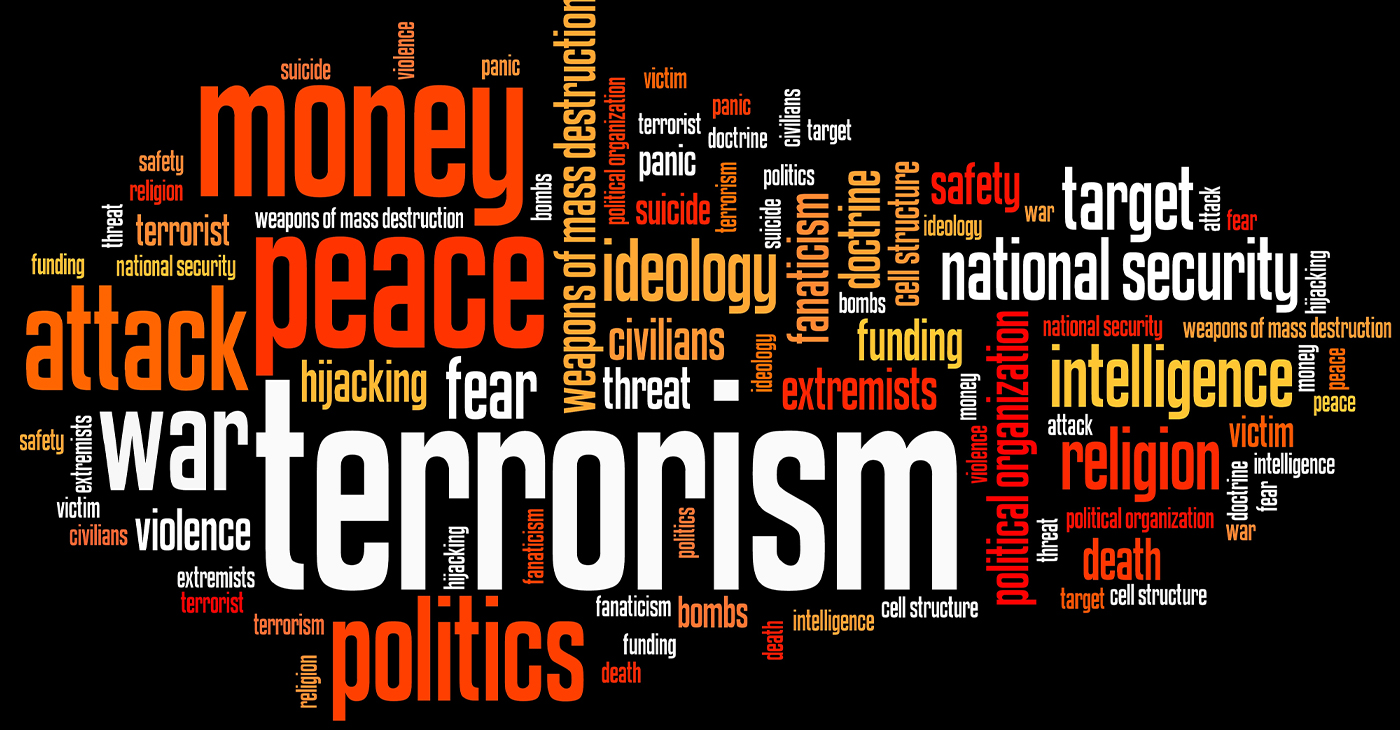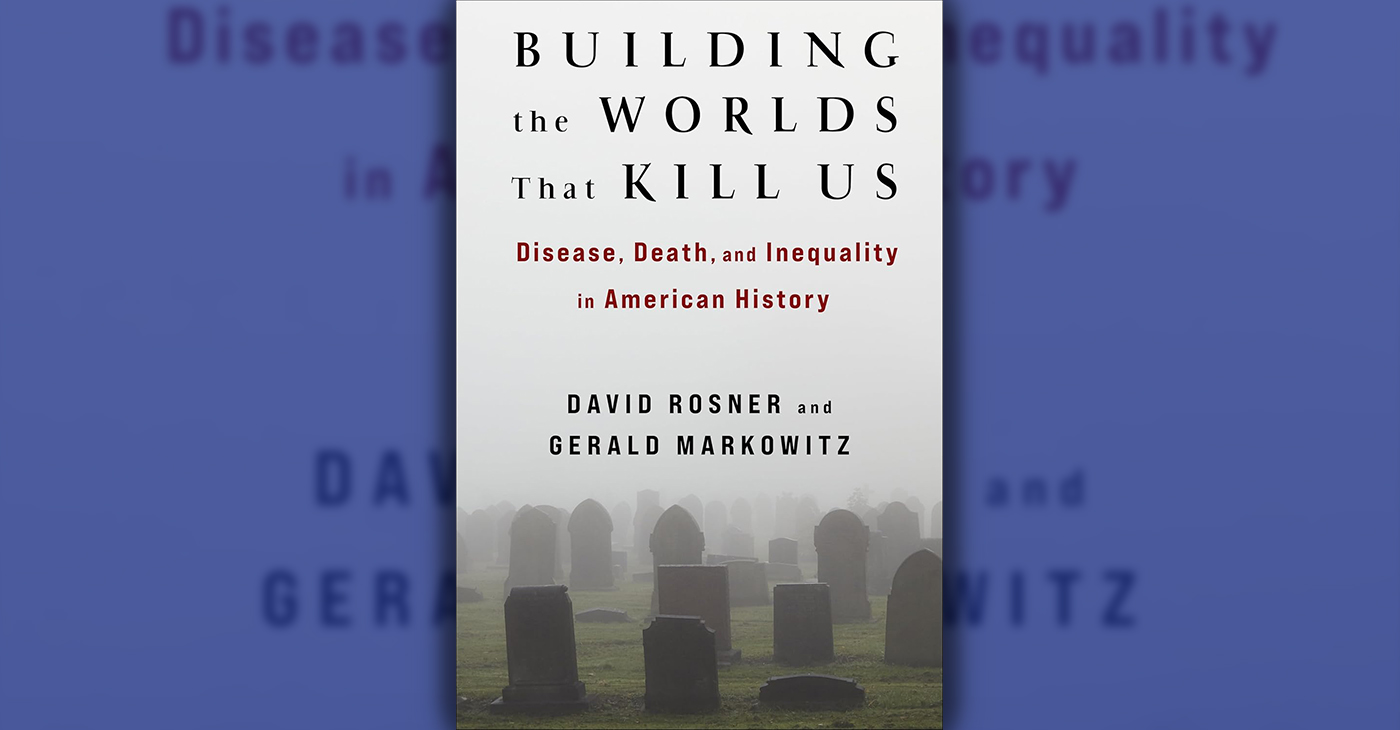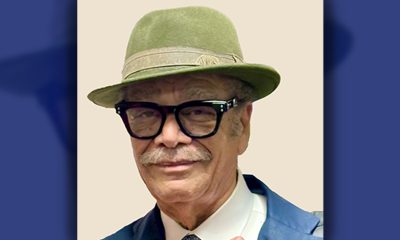Opinion
Opinion: Bail Bond System is Fundamentally Unjust
 By Paul Clermont
By Paul Clermont
“Innocent until proven guilty” is a fundamental principle of decent societies worldwide.
So is the idea that people who cause harm should be held accountable.
But what if you are innocent of the crime? Shouldn’t that mean you receive no punishment? Of course, but that’s not always how it works in the real world, thanks to our country’s money bail policies.
What’s wrong with them? Simply put, they’re unjust.
Here’s why.
Suppose you’re arrested, perhaps only for a minor or non-violent crime. For whatever reason, the court decides not to release you on personal recognizance until the trial date, so it sets a cash bail amount.
Your choice is to post the bail or sit in jail.
If you’re unemployed or have one of the many millions of poorly paid jobs, raising cash bail poses a major problem. But if you can come up with 10 percent of the bail amount, a bail bondsman will put up the rest so you can be released while your case moves forward.
Then your case comes to trial or charges are dropped. Had you not needed the bail bondsman, your money would be returned in full minus a few administrative fees.
But if you couldn’t raise the bail money yourself, the bail bondsman gets to keep the 10% you did put in; no crime but you’re punished nevertheless.
If you don’t like that deal—who would?—you stay in jail awaiting trial. In the meantime, you probably lose your income while you’re there and perhaps your job.
Again no crime, but punishment anyway.
Unsurprisingly, the impact of these policies is greatest on the poor and those with moderate incomes, because if you have enough money (California’s median bail amount is $50,000.) you post your own bail and go about your business, with at most only travel restrictions, getting your money back when you show up for the trial, or sooner if charges are dropped.
Now suppose you are found guilty.
If you’re wealthy enough to have posted the full bail, you get your punishment but your bail money is returned. If you needed the bail bondsman, you get the punishment plus the equivalent of a fine—10 percent of your bail. Guilty or innocent, this hardly constitutes equal treatment before the law, and if it seems frighteningly un-American, that’s because it is.
We still have serious injustices that need rectifying, and our system of money bail is one of them.
The theory behind bail is that the court wants to guarantee that a defendant who doesn’t need to be detained as a public safety risk will show up for trial.
Yet despite its substantial bail requirements, California has the lowest court appearance rates in the country. Other states have passed reforms with great success.
For example, Kentucky releases about 70 percent of the people awaiting trial, and 89 percent of them make all their court appearances. What’s more, 92 percent of them are not re-arrested while they’re on pretrial release.
So if a practice is fundamentally unjust and also doesn’t accomplish what its supporters claim, isn’t it time to get rid of it? This is not a left versus right or a partisan issue, nor is it a soft- versus tough-on-crime issue. It’s the righting of a basic unfairness that has lingered far too long.
In the next month, our Legislature votes on a bail reform bill that addresses these injustices without compromising the ability to protect against flight risk and keeping our communities safe.
If bail reform sounds like a common-sense reform that is long overdue, let your Assembly Member know where you stand and that it’s time to act.
California has long been a leader on reforms that make our society more just and fair; let’s keep it that way by changing the way we approach money bail.
Paul Clermont is from the Bay Area chapter of Bend the Arc Jewish Action.
Activism
Oakland Post: Week of January 8 – 14, 2025
The printed Weekly Edition of the Oakland Post: Week of January 8 – 14, 2025

To enlarge your view of this issue, use the slider, magnifying glass icon or full page icon in the lower right corner of the browser window.
Activism
Expect The Worst? Political Scientists Have a Pessimism Bias, Study Finds
The research, co-authored by UC Berkeley political scientist Andrew T. Little, offers a possible solution: an approach that aggregates experts’ predictions, finds the middle ground, and then reduces the influence of pessimism, leading to the possibility of “remarkably accurate predictions.”

Political experts surveyed recently were prone to pessimism — and were often wrong, says a study co-authored at UC Berkeley. Still, when their predictions were averaged out, they were ‘remarkably accurate’
By Edward Lempinen, UC Berkeley News
The past decade has seen historic challenges for U.S. democracy and an intense focus by scholars on events that seem to signal democratic decline. But new research released two weeks ago finds that a bias toward pessimism among U.S. political scientists often leads to inaccurate predictions about the future threats to democracy.
The research, co-authored by UC Berkeley political scientist Andrew T. Little, offers a possible solution: an approach that aggregates experts’ predictions, finds the middle ground, and then reduces the influence of pessimism, leading to the possibility of “remarkably accurate predictions.”
The study was released by Bright Line Watch, a consortium of political scientists who focus on issues related to the health of U.S. democracy. It offers provocative insight into political scientists’ predictions for the months ahead, including some that would be seen as alarming risks for democracy.
According to an analysis that Little distilled from a Bright Line Watch survey done after the November election, political scientists generally agreed that incoming Republican President Donald Trump is highly likely to pardon MAGA forces imprisoned for roles in the Jan. 6, 2021 uprising that sought to block the peaceful transfer of power from Trump to Democrat Joe Biden.
The research concluded that it’s less likely, but still probable, that Trump will pardon himself from a series of federal criminal convictions and investigations, and that his allies will open an investigation of Biden.
In understanding the future course of U.S. politics, Little said in an interview, it’s important to listen to the consensus of expert political scientists rather than to individual experts who, sometimes, become media figures based on their dire predictions.
“If we’re worried about being excessively pessimistic,” he explained, “and if we don’t want to conclude that every possible bad thing is going to happen, then we should make sure that we’re mainly worrying about things where there is wider consensus (among political scientists).”
Believe the Consensus, Doubt the Outliers
For example, the raw data from hundreds of survey responses studied by Little and Bright Line researchers showed that more than half of the political scientists also expected Trump to form a board that would explore the removal of generals; deport millions of immigrants; and initiate a mass firing of civil service government employees.
But once the researchers aggregated the scholars’ opinions, determined the average of their expectations and controlled for their pessimism bias, the consensus was that the likelihood of those developments falls well below 50%.
Bright Line Watch, founded in 2016, is based at the Chicago Center on Democracy and is collaboratively run by political scientists at the University of Chicago, Dartmouth College, the University of Michigan and the University of Rochester in New York.
The research collaboration between Little and the Bright Line Watch scholars sprang from a collegial disagreement that emerged last January in the pages of the journal Political Science and Politics.
Little and Anne Meng, a political scientist at the University of Virginia, authored a research paper in that issue positing that there is little empirical, data-based evidence of global democratic decline in the past decade.
At the request of the journal editors, scholars at Bright Line Watch submitted a study to counter the argument made by Meng and Little.
But in subsequent weeks, the two teams came together and, in the study released on Dec. 17, found agreement that raw opinion on the state of democracy skews toward pessimism among the political scientists who have participated in the surveys run by Bright Line Watch.
A Stark Measure of Pessimism (and Error)
Surveys conducted during election seasons in 2020, 2022 and 2024 asked political scientists to provide their forecasts on dozens of scenarios that would be, without doubt, harmful for democracy.
The raw data in the new study showed a high level of inaccuracy in the forecasts: While the political scientists, on average, found a 45% likelihood of the negative events happening, fewer than 25% actually came to pass.
Before last month’s election, Bright Line Watch asked the political scientists to assess dozens of possibilities that seemed to be ripped from the headlines. Would foreign hackers cripple voting systems? Would Trump or Vice President Kamala Harris, the Democratic candidate, declare victory before the winner was called by the news media? Would Trump incite political violence again?
Altogether, the political scientists predicted a 44% probability for the list of negative events — but only 10% actually happened.
In the interview, Little defended the focus on possible negative developments by political scientists and others. It’s “very important” to be aware of the potential for harmful developments, he said.
But the focus on worst-case scenarios can also be distracting and destabilizing. The question, then, is why political scientists might develop a bias for pessimism.
To some extent, Little said, it may be a matter of expertise. The data show that scholars who specialize in American politics tend to be the least pessimistic — and the most accurate — forecasters. Political scientists with expertise in international relations, political theory or other areas tend to be more pessimistic and less reliable.
Little offered several other possible explanations. For example, he said, when scholars focus on one narrow area, like threats to democracy, they might see the potential threats with a heightened urgency. Their worry might shape the way they see the wider political world.
“People who study authoritarian politics are probably drawn to that because they think it’s an important problem, and they think it’s a problem that we need to address,” he explained. “If you spend a lot of your time and effort focusing on bad scenarios that might happen, you might end up thinking they’re more likely than they really are.”
And occasionally, he said, scholars may find that raising alarms about imminent dangers to democracy leads to more media invitations.
The Battle for Scholars’ Public Credibility
For the interwoven fields of political science and journalism — and for the wider health of democracy — accuracy is essential. That’s the value of the analytical system described by the authors of the new study. If researchers can find the expert consensus on complex issues and tone down unwarranted alarm, understanding should improve, and democracy should operate more efficiently.
Still, Little cautioned, it would be a mistake to discount or discard the insights offered by expert political scientists.
“You don’t want to say, ‘I’m just going to ignore the experts,’” he advised. “This research shows that that would be a very bad idea. Once you do the adjustments, the experts are very informed, and you can learn a lot from what they say.
Arts and Culture
Book Review: Building the Worlds That Kill Us: Disease, Death, and Inequality in American History
Nearly five years ago, while interviewing residents along the Mississippi River in Louisiana for a book they were writing, authors Rosner and Markowitz learned that they’d caused a little brouhaha. Large corporations in the area, ones that the residents of “a small, largely African American community” had battled over air and soil contamination and illness, didn’t want any more “’agitators’” poking around. They’d asked a state trooper to see if the authors were going to cause trouble.

By Terri Schlichenmeyer
Author: David Rosner and Gerald Markowitz, c.2024, Columbia University Press, $28.00
Get lots of rest.
That’s always good advice when you’re ailing. Don’t overdo. Don’t try to be Superman or Supermom, just rest and follow your doctor’s orders.
And if, as in the new book, “Building the Worlds That Kill Us” by David Rosner and Gerald Markowitz, the color of your skin and your social strata are a certain way, you’ll feel better soon.
Nearly five years ago, while interviewing residents along the Mississippi River in Louisiana for a book they were writing, authors Rosner and Markowitz learned that they’d caused a little brouhaha. Large corporations in the area, ones that the residents of “a small, largely African American community” had battled over air and soil contamination and illness, didn’t want any more “’agitators’” poking around. They’d asked a state trooper to see if the authors were going to cause trouble.
For Rosner and Markowitz, this underscored “what every thoughtful person at least suspects”: that age, geography, immigrant status, “income, wealth, race, gender, sexuality, and social position” largely impacts the quality and availability of medical care.
It’s been this way since Europeans first arrived on North American shores.
Native Americans “had their share of illness and disease” even before the Europeans arrived and brought diseases that decimated established populations. There was little-to-no medicine offered to slaves on the Middle Passage because a ship owner’s “financial calculus… included the price of disease and death.” According to the authors, many enslavers weren’t even “convinced” that the cost of feeding their slaves was worth the work received.
Factory workers in the late 1800s and early 1900s worked long weeks and long days under sometimes dangerous conditions, and health care was meager; Depression-era workers didn’t fare much better. Black Americans were used for medical experimentation. And just three years ago, the American Lung Association reported that “’people of color’ disproportionately” lived in areas where the air quality was particularly dangerous.
So, what does all this mean? Authors David Rosner and Gerald Markowitz don’t seem to be too optimistic, for one thing, but in “Building the Worlds That Kill Us,” they do leave readers with a thought-provoker: “we as a nation … created this dark moment and we have the ability to change it.” Finding the “how” in this book, however, will take serious between-the-lines reading.
If that sounds ominous, it is. Most of this book is, in fact, quite dismaying, despite that there are glimpses of pushback here and there, in the form of protests and strikes throughout many decades. You may notice, if this is a subject you’re passionate about, that the histories may be familiar but deeper than you might’ve learned in high school. You’ll also notice the relevance to today’s healthcare issues and questions, and that’s likewise disturbing.
This is by no means a happy-happy vacation book, but it is essential reading if you care about national health issues, worker safety, public attitudes, and government involvement in medical care inequality. You may know some of what’s inside “Building the Worlds That Kill Us,” but now you can learn the rest.
-

 Activism3 weeks ago
Activism3 weeks agoBooks for Ghana
-

 Arts and Culture4 weeks ago
Arts and Culture4 weeks agoPromise Marks Performs Songs of Etta James in One-Woman Show, “A Sunday Kind of Love” at the Black Repertory Theater in Berkeley
-

 Bay Area3 weeks ago
Bay Area3 weeks agoGlydways Breaking Ground on 14-Acre Demonstration Facility at Hilltop Mall
-

 Activism4 weeks ago
Activism4 weeks ago‘Donald Trump Is Not a God:’ Rep. Bennie Thompson Blasts Trump’s Call to Jail Him
-

 Activism3 weeks ago
Activism3 weeks agoLiving His Legacy: The Late Oscar Wright’s “Village” Vows to Inherit Activist’s Commitment to Education
-

 Arts and Culture3 weeks ago
Arts and Culture3 weeks agoIn ‘Affrilachia: Testimonies,’ Puts Blacks in Appalacia on the Map
-

 Alameda County3 weeks ago
Alameda County3 weeks agoAC Transit Holiday Bus Offering Free Rides Since 1963
-

 #NNPA BlackPress4 weeks ago
#NNPA BlackPress4 weeks agoCalifornia, Districts Try to Recruit and Retain Black Teachers; Advocates Say More Should Be Done





















































